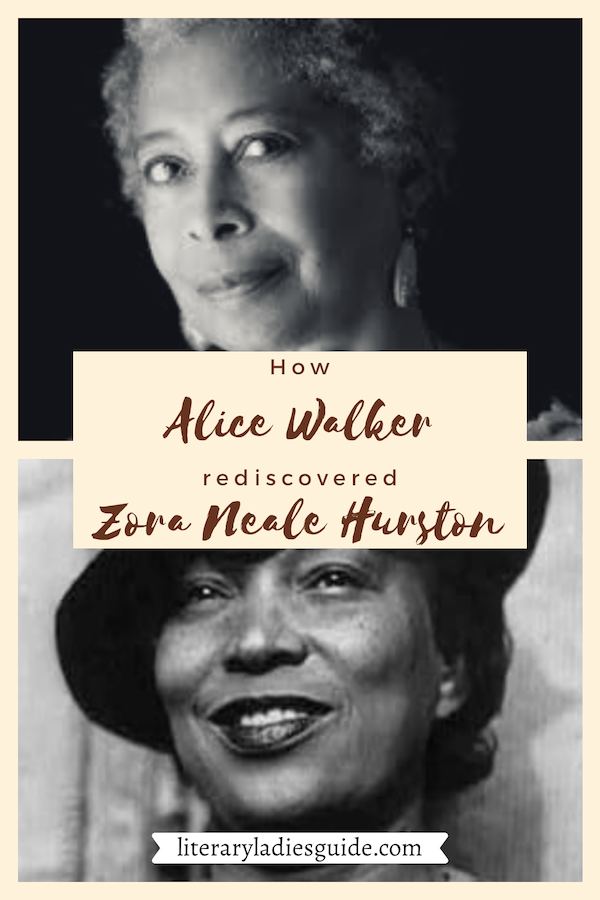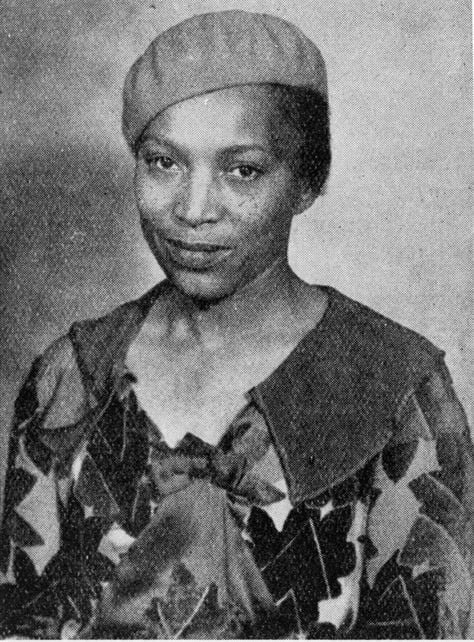I Love Myself When I Am Laughing … by Zora Neale Hurston
By Emma Ward | On March 30, 2017 | Updated October 4, 2022 | Comments (2)

Edited and introduced by Alice Walker, I Love Myself: When I am Laughing … and Then Again When I am Looking Mean and Impressive is an anthology of writings by Zora Neale Hurston.
This 1979 collection pays tribute to Hurston’s role in Black literature of the early twentieth century.
Hurston wasn’t known for being humble. She was upset over receiving second place in literary contests, yet confidently flaunted her talents. Walker wrote: “To know that second place, in such a society, has often required more work and innate genius than the first is to trust your self-evaluation …”
Humor and courage as a writer
Walker writes that Zora was loved for “the humor and courage with which she encountered a life she infrequently designed, for her absolute disinterest in becoming either white or bourgeois, and for her devoted appreciation of her own culture, which is an inspiration to us all.”
Zora created black characters who used a genuine folk dialect, in contrast to the popular minstrel shows at the time which mocked and discredited African-American culture. In this way, it is evident that Hurston wrote for her community.
Yet, Hurston is frequently criticized for lacking concrete political themes although her characters and their surroundings reflect society’s prejudice of race and gender. Walker theorizes that it is important to separate the artist from their work and that Hurston doesn’t have an obligation to be outright political.
See the video Alice Walker Shines a Light on Zora Neale Hurston on PBS.
. . . . . . . . . . .

How Alice Walker Rediscovered Zora Neal Hurston
. . . . . . . . . . .
Financial struggles cast a lifelong shadow
Unlike many white women writers during this era, Hurston wasn’t able to support herself with writing. Outside of the black community, her work wasn’t very popular due to its political undertones critiquing, racial oppression in America.
“Financial dependency is the thread that sewed a cloud over Hurston’s life, from the time she left home as a maid at 14 to the day of her death.” Walker notes that it wasn’t until she died penniless as a result of staying true to her personal writing that she was finally taken seriously.
She also noted: “That Hurston held her own, literally, against the flood of whiteness and maleness that diluted so much other Black art of the period in which she worked is a testimony to her genius and faith.”
. . . . . . . . . . .

Zora Neale Hurston Quote and Life Lessons
. . . . . . . . . . .
Quotes from I Love Myself When I am Laughing …
I Love Myself When I am Laughing … is an anthology of Zora Neale Hurston’s writings, including essays as well as portions of her novels and memoirs. Here is a selection from the works in this volume:
Dust Tracks on a Road
“Research is formalized curiosity. It is poking and prying with purpose. It is a seeking that he who wishes may know the cosmic secret of the world and they that dwell therein.”
. . . . . . . . . . .
“My search for knowledge of things took me into many strange places and adventures. My life was in danger several times. If I had not learned how to take care of myself in these circumstances, I could have been maimed or killed on most any day of the several years of my research work. Primitive minds are quick to sunshine and quick to anger. Some little word, look, or gesture can move them either to love or to sticking a knife between your rib. You just have to sense the delicate balance and maintain it.”
. . . . . . . . . .

Photo by Anna Fiore
. . . . . . . . . .
Tell My Horse
“Jamaica is the land where the rooster lays an egg. Jamaica is two percent white and the other ninety-eight percent all degrees of mixture between white and black, and that is where the rooster’s nest comes in.
Being an English colony, it is very British. Colonies always do imitate the mother country more or less. For instance some Americans are still aping the English as best they can even though they have had one hundred and fifty years in which to recover.”
. . . . . . . . . . .
“That brings us back to the matter of the rooster’s nest again. When a Jamaican is born of a black woman and some English or Scotsman, the black mother is literally and figuratively kept out of sight as far as possible, but no one is allowed to forget that white father, however questionable the circumstances of the birth.
You hear about ‘My father this and my father that, and my father who was English, you know,’ until you get the impression that that he or she had no mother … you get the impression that these virile Englishmen do not require women to reproduce.” (read more about Tell My Horse)
How it Feels to Be Colored Me
“I am colored but I offer nothing in the way of extenuating circumstances except the fact that I am the only Negro in the United States whose grandfather on the mother’s side was not an Indian chief.”
. . . . . . . . . . .
“Even in the helter-skelter skirmish that is my life, I have seen that the world is to the strong regardless of a little pigmentation more or less. No, I do not weep at the world — I am too busy sharpening my oyster knife.”
. . . . . . . . . . .
“At certain times I have no race, I am me. When I set my hat at a certain angle and saunter down Seventh Avenue, Harlem City, feeling as snooty as the lions in front of the Forty-Second Street Library, for instance … the cosmic Zora emerges. I belong to no race or time. I am the eternal feminine with its string of beads.”
From “The Gilded Six-Bits”
“The front door stood open to the sunshine so that the floor of the front room could finish drying after its weekly scouring. It was Saturday. Everything was clean from the front gate to the privy house. Yard raked so that the strokes of the rake would make a pattern.
Missie May was bathing herself in the galvanized washtub in the bedroom. Her dark-brown skin glistened under the soapsuds that skittered down from her wash rag. Her stiff young breasts thrust forward aggressively like broad-based cones with the tips lacquered in black.” (read an analysis of the Gilded Six-Bits)
. . . . . . . . . . .
. . . . . . . . . . .
RELATED POSTS
Zora Neale Hurston Quotes and Life Lessons
5 Quotes from “How it Feels to Be Colored Me”
What White Publishers Won’t Print
“Crazy for This Democracy”

Their Eyes Were Watching God is how I found Zora Neale Hurston. I could not put the book down until it was finished…then I read it again.
I hear you! I recently re-read it, and it’s mesmerizing.